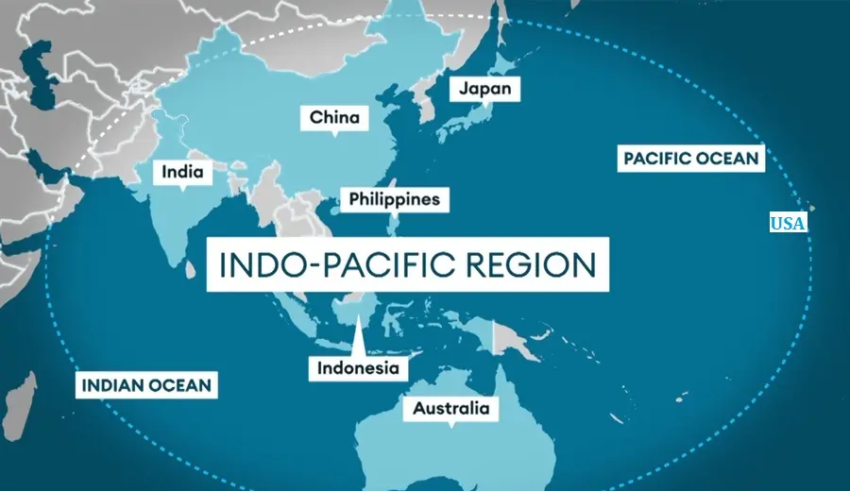
Under the Biden Administration, the US foreign policy focused on improving its relations with the countries of South-East Asia. The program, called Indo-Pacific Strategy, signed a complete change of direction from the Trump era. Indeed, in 2016 the US government tried to disrupt the relationship created in the past with Indo-Pacific states and, especially, did not commit to protecting Taiwan against the Chinese military threat. According to the previous President, the United States should not maintain a security alliance with this region.
Nonetheless, although the two actors had different ways of promoting foreign policies, they both pursued the isolation of China. In addition, the Chinese belligerence is revitalizing the US partnership in the area. The US has declared itself as an Indo-Pacific power and has outlined a strategy with the other regional countries based on free and open cooperation, connection, prosperity, security, and resilience. What the US is thus implying is a plan to restrict China’s ability to exercise its power in the economic, diplomatic, military, and technological sphere of the Indo-Pacific. In particular, the US is framing the strategic rivalry in ideological terms, hence stressing democracy, plural society and freedom of information and expression. Biden is bolstering these states to enhance deterrence against North Korea as well.
Other Western and non-Western countries are trying to balance against China and equally many are cooperating with the US in the security field. Japan is a long-standing partner of the US. They constitute two of the richest countries in the world with sizeable military, technological, and diplomatic influence at their disposal. Moreover, Japan has allowed the US to conduct military operations around its coasts, including joint patrols with the Navy and other partners in the South China Sea. It is a crucial ally of the US even because it does care about peacekeeping operations in the Taiwan Strait. Furthermore, it is an important player in the Quadrilateral Security Dialogue, called Quad, together with Australia and India, and in the ASEAN, the Association of South-East Asian Nations. Yet, Japan cooperates also with NATO, which is strategically looking to further engagement with the country, as well as Australia, New Zealand, and the Republic of Korea.
Recent events and meetings show us how well the Indo-Pacific Strategy is going. In 2022, China was shocked by the Taiwan visit of House Speaker Nancy Pelosi. Later, in September 2023, Biden visited Vietnam to raise the two countries’ partnership to a “comprehensive strategic” one. At the G20 summit in Delhi, ties between US and India were strengthened, following the first visit to the US of Prime Minister Modi in June 2023. In November 2023, Indonesian President Joko Widodo visited the White House and upgraded their partnership to a comprehensive strategic one. In the same month, the US, Japan, and South Korea convened a Trilateral Ministerial Meeting in Seoul. Furthermore, at the APEC (Asia-Pacific Economic Cooperation) 2023 in San Francisco, President Biden hailed a new economic agreement among 14 Asia Pacific countries.
At the same summit, Biden did not refuse to host Chinese President Xi Jinping. They met in a historical occasion, involving the Ukraine war, the Israel-Hamas conflict, and the upcoming sustainability summit COP28. However, the conference aimed at increasing Washington’s network of alliances, partnerships and monoliteral groupings and was assumed by China as an accelerant of major power conflict, not a building block for deterrence and stability. Biden has then coined the Indo-Pacific Economic Framework for Prosperity (IPEF), which does not offer market access but seeks to ease the way for business across 14 countries that include Japan, India, Australia, South Korea and much of Southeast Asia, but not China. One of the targets of Biden’s economic policy has always been to reduce the US’ economic reliance on Chinese factories. On the other hand, the Chinese economy is under heavy strain, not registering those high profits signed in the past. Therefore, Xi Jinping has reason to try to restore economic cooperation with the US, but Biden has proven to be tougher than Trump. In conclusion, although negotiations between the US and China did not change the settings, we have clearly seen a shift in the US political strategic methods of doing foreign policy. Biden is more “politically correct” than Trump, but the aims of the United States are still to keep their global power on top and avoid cooperating with China, claiming the question of human rights.
By The European Institute for International Law and International Relations
References
https://www.usaid.gov/asia-regional/indo-pacific-strategy-united-states
https://www.deccanherald.com/opinion/why-the-indo-pacific-region-matters-to-the-us-1086881.html













